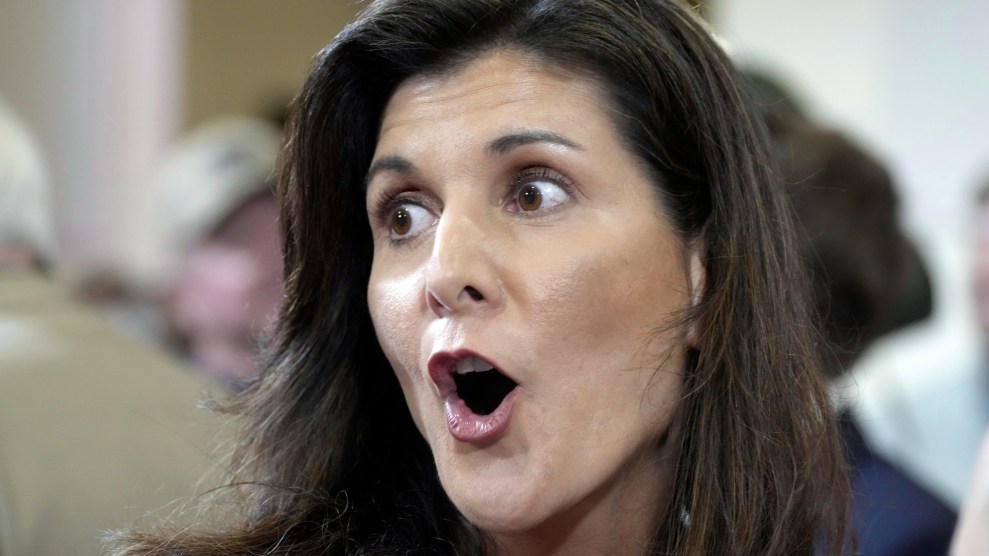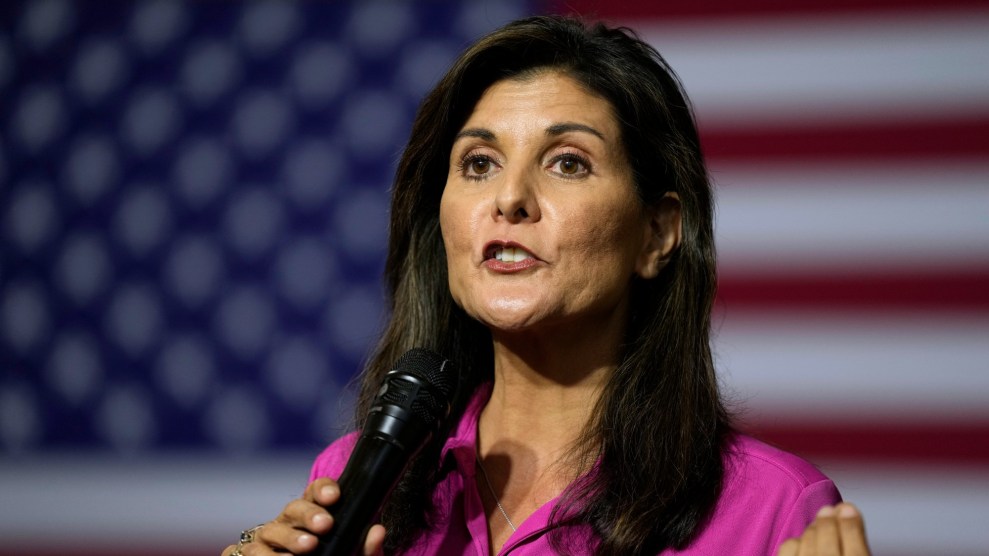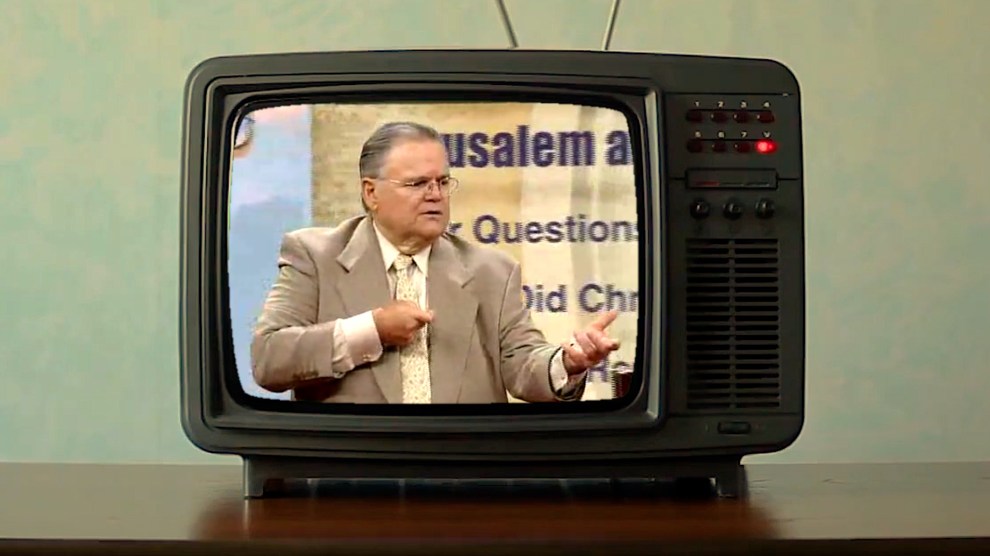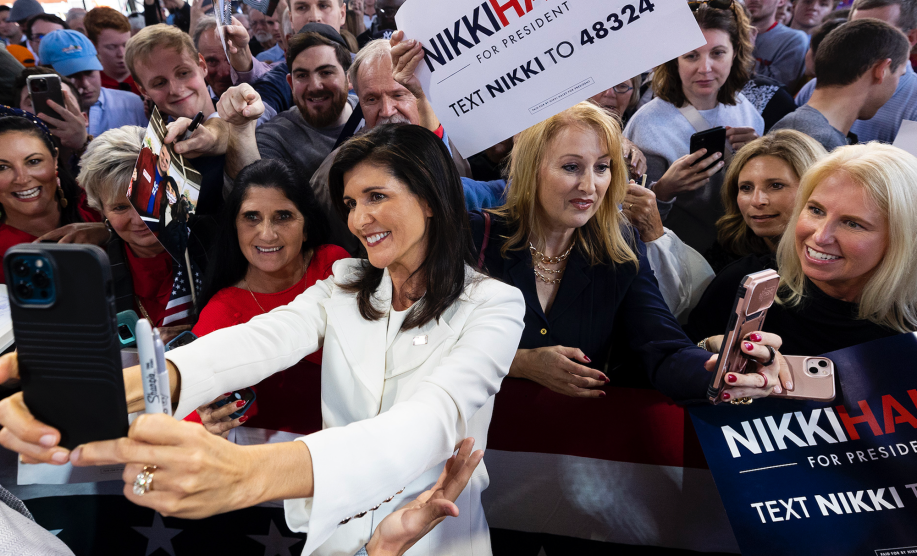
Meg Kinnard/ AP
The Republican queen of flip-flopping is at it again.
Shortly after Donald Trump became the first former US president to get indicted on federal charges, Nikki Haley joined prominent Republicans to rail against the charges. “The American people are exhausted by the prosecutorial overreach, double standards, and vendetta politics,” she complained on Twitter. But three days later, Haley struck a different note, calling Trump “incredibly reckless with our national security” if the allegations listed in the indictment were true.
All of which made her response when asked if she’d publicly commit to pardoning Trump confusing, if not jarring.
“When you look at a pardon, the issue is less about guilt and more about what’s good for the country,” Haley said during a radio interview with the Clay Travis and Buck Sexton Show on Tuesday. “And I think it would be terrible for the country to have a former president in prison for years because of a documents case.” She quickly added that it’s premature to discuss pardoning Trump.
So what exactly is Haley’s stance on Trump’s indictment? That seems intentionally unclear, and her position is all but certain to keep mutating as the Republican primary ramps up. Of course, such rapid-fire pivoting and efforts to cut it both ways are nothing new for the former South Carolina governor. We’ve seen that dance when Haley condemned Trump over the January 6 attack on the US Capitol, only to later call him the “true victim” of the day.
My colleague Jacob Rosenberg describes it as “Haley’s Paradox,” a feature we’re sure to see keep seeing throughout the 2024 Republican primary:
Any 2024 campaign against Trump in the primary must explain both why Trump would be a bad enough choice for them to need to run (vote for me, not him), and why it is also not a criticism of Trump (vote Republican!). The candidate must be a synthesis of pre- and post-Trump Republicanism, and yet that means this person will obviously carry the flaws of both. Haley can be criticized for her fealty to Trump (her role in his administration on foreign policy) and also as indicative of what he stood against (her actual foreign policy positions). This contradiction will be at the heart of this endless cycle in the primary.
Where will Haley’s Paradox eventually land? It’s anyone’s guess. But if Trump ends up back at the White House, don’t be surprised to see the shameless opportunism that has always guided Haley to be ready for its next Trump administration gig.
















